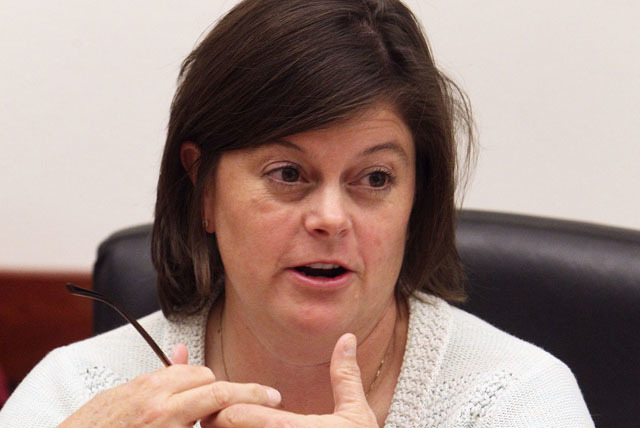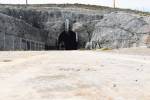Arena proposal calls for $239 million from Las Vegas, some raised through special tax
The city of Las Vegas plans to continue working with Cordish Companies to develop a $390 million downtown sports arena, with the city paying $239 million raised in part by a special tax on downtown businesses.
The terms are attached to a proposal to extend by four months a three-year-old exclusive negotiating agreement with Baltimore-based Cordish, which would contribute $151 million to the deal.
It’s scheduled to go before the city council Jan. 22. If approved, Cordish and the city would have until June 1 to finalize a development agreement based on the proposed terms.
If the development agreement isn’t finalized by then, Cordish would walk away with about $2.4 million based on the initial agreement from 2010.
If the council rejects the extension, the city’s existing negotiating agreement with Cordish would expire by the end of the month.
“Many of the difficult negotiations are complete,” City Manager Betsy Fretwell said. “Now we have to do the detail work to ensure the development agreement follows those guidelines and we get these other studies done to round the project out.”
According to the proposed extension, the studies include one to verify the project could be built for the estimated cost, an “investment grade feasibility study” for the financing plan, and an updated pro forma for development, financing and operation of the Live District, which would include other hospitality options in addition to an arena.
According to the proposed terms, the city would fulfill its end using $187 million from bonds backed by arena revenue, nearly $52 million from a special improvement district that would assess casinos along Fremont Street and other downtown businesses based on proximity to the project and $3 million from a tourism improvement district funded through sales tax.
Fretwell described the outline of a proposed deal as better than most public-private arena agreements. She said aspects favorable to the city include a provision that the city would be repaid for its contribution before the developer and that the city would own it.
“It actually becomes a public asset for the community,” Fretwell said.
Jeff Victor, president and general manager of the Fremont Street Experience, the entity that operates the Fremont Street canopy on behalf of the casinos underneath it, said city officials haven’t broached the idea of an arena assessment with him.
“If they are going to add a tax to the highest paying taxpayers in the city I would think they would talk to them,” Victor said. “I am kind of shocked.”
The downtown proposal is one of several local arena projects in varying stages of development.
Among them is an approximately $350 million proposal by MGM Resorts International and AEG, a prominent live entertainment venue developer and operator. It’s expected to break ground this year.
“We are not asking for or seeking or using public money,” said Alan Feldman, executive vice president of global government and industry affairs for the company.
Feldman said subsidizing professional sports arenas is an inappropriate use of public money, even if the subsidy is in the form of bonds that would be paid for from arena revenue.
“The city doesn’t have unlimited bonding capacity so they are choosing what they are going to bond,” Feldman said. “What else isn’t getting bonded during that time?”
Neil deMause, who runs the sports stadium news website FieldofSchemes.com, said city officials are smart to seek an agreement that would repay the public first but was skeptical of the overall premise.
“It is not a slam dunk to open an arena,” deMause said. “They are expensive to build, they are expensive to run and nobody wants to pay money to play.”
He said the plans by MGM and AEG and others further complicate the city’s proposal because they would be competing for acts and, potentially, sports tenants.
Both the city and MGM say their arenas could support professional basketball or hockey but work financially without teams.
Still, deMause said MGM’s arena would make it difficult for a city facility to generate enough revenue to repay construction costs, fund operations and provide a profit for private partners.
“You then are either going to have to cut a lowball deal to get a team or you are going to have to undercut the MGM arena to get concerts,” he said.
Contact reporter Benjamin Spillman at bspillman@reviewjournal.com or 702-383-0285. Follow him on Twitter @BenSpillman702.




























